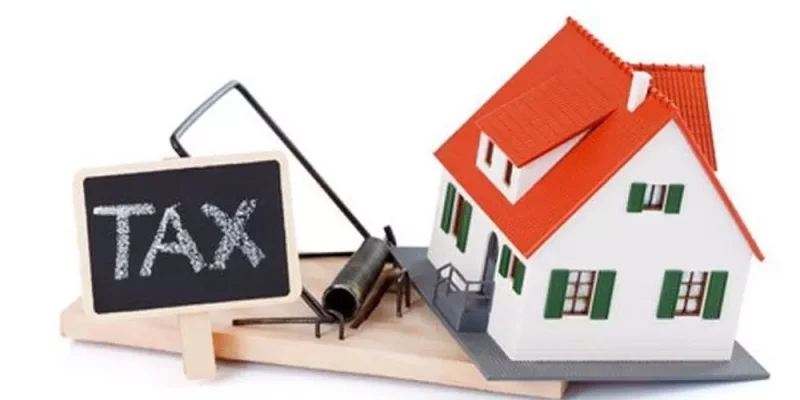Buying a property in Spain should come with a warning label: May cause confusion, frustration, and a sudden desire to drink brandy at noon.
Especially when it comes to taxes.
And if you’re looking at a house in Javea—sunny, citrus-scented Javea—you’ll need to know what you’re getting into before money changes hands. Because once you sign on that dotted line, you’re not just getting a villa with a pool. You’re also getting a set of tax bills that will arrive with the punctuality of an overly cheerful postman.
We asked Jake Holmes, who runs www.javeaproperty.com and www.valuvillas.com, for the lowdown. Here’s what you need to know.
1. The One That Hits First – Property Transfer Tax (ITP)
This is Spain’s version of a handshake with a sharp edge. If you buy a resale property (meaning it’s not new), you’ll have to pay the Impuesto sobre Transmisiones Patrimoniales.
In the Valencia region (which includes Javea), the rate is usually 10% of the purchase price.
So, you buy a home for €300,000? That’s €30,000. Gone. Just like that.
This tax must be paid within 30 working days after signing the sale deed. Miss the deadline, and you’ll wish you hadn’t.
2. Buying a New-Build? Swap That for VAT and Stamp Duty
If you’re buying a brand-new home from a developer, ITP is swapped for two other nasties:
- VAT (IVA) – 10%
- Stamp Duty (AJD) – 1.5% in the Valencia region
So on a €300,000 new-build, you’re looking at €30,000 in VAT plus €4,500 in stamp duty.
Yes, the sea view is lovely, but the taxman has his binoculars trained on it too.
3. Annual Property Tax – IBI
Once the dust has settled and the sangria stains on your contract have dried, you’ll be expected to pay Impuesto sobre Bienes Inmuebles, or IBI. This is a yearly local tax charged by the town hall.
The amount is based on the cadastral value of the property (an amount decided by people who live in filing cabinets and rarely see the sun). In Javea, this usually works out to be between 0.4% and 1.1% of that value.
So if the cadastral value is €150,000, expect an IBI bill of somewhere between €600 and €1,650 a year.
It’s a bit like council tax, only with more paperwork and fewer bin collections.

4. Non-Resident Income Tax (Even If You Don’t Rent It Out)
Here’s where it gets surreal.
If you’re not officially a Spanish resident, and you don’t rent out your property, the Spanish tax office still assumes you’re getting some benefit from owning it. So they charge you for it. Yes, really.
It’s called Imputed Income Tax.
You’ll pay a percentage (1.1% or 2% of the cadastral value) as if the property was earning you money—even if all it’s doing is collecting geckos.
Multiply that by 24%, and you’ve got your annual payment.
It’s not huge, but it’s the principle that makes you want to shake someone gently by the collar.
5. Wealth Tax (For the Unreasonably Lucky)
If your worldwide assets add up to more than €700,000 per person (not counting €300,000 of your main home), then Spain wants a slice of that too.
This is the Wealth Tax, and it’s rarely applied to everyday buyers. But your accountant may start twitching if your portfolio includes villas, yachts, and a suspiciously expensive wine collection.
6. Capital Gains Tax – When You Sell Up
Sell your property for more than you paid for it? Nice. But Spain wants a cut of that too.
Capital Gains Tax applies to the profit you make:
- 19% on the first €6,000
- 21% up to €50,000
- 23% up to €200,000
- 28% above that
Deductions are available for things like renovation costs, but you’ll need proof. Lots of it. Preferably in triplicate and covered in red stamps.
7. Plusvalía – The Local Exit Fee
This is a municipal tax charged when you sell, based on the increase in value of the land your property sits on. Even if prices fall, the town hall may still find a way to ask for money.
The exact amount depends on how long you’ve owned the property and where it’s located. It’s a strange calculation involving tables, rates, and at least one person who still uses a fax machine.
A Few Final Notes (Without the Fluff)
- Always get a fiscal representative if you’re not fluent in Spanish bureaucracy.
- Never assume the seller has paid everything up to date. Get proof.
- Don’t wait until after you’ve bought to learn this stuff. The tax office won’t be sympathetic.













Comments